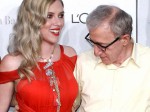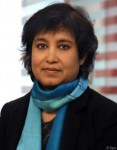By Science!
In a letter to Science Careers, a post-doc asks what she should do about an advisor who’s frequently trying to peek down her shirt. The answer is a boon to men in positions of power everywhere.
As long as your adviser does not move on to other advances, I suggest you put up with it, with good humor if you can. Just make sure that he is listening to you and your ideas, taking in the results you are presenting, and taking your science seriously. His attention on your chest may be unwelcome, but you need his attention on your science and his best advice.





